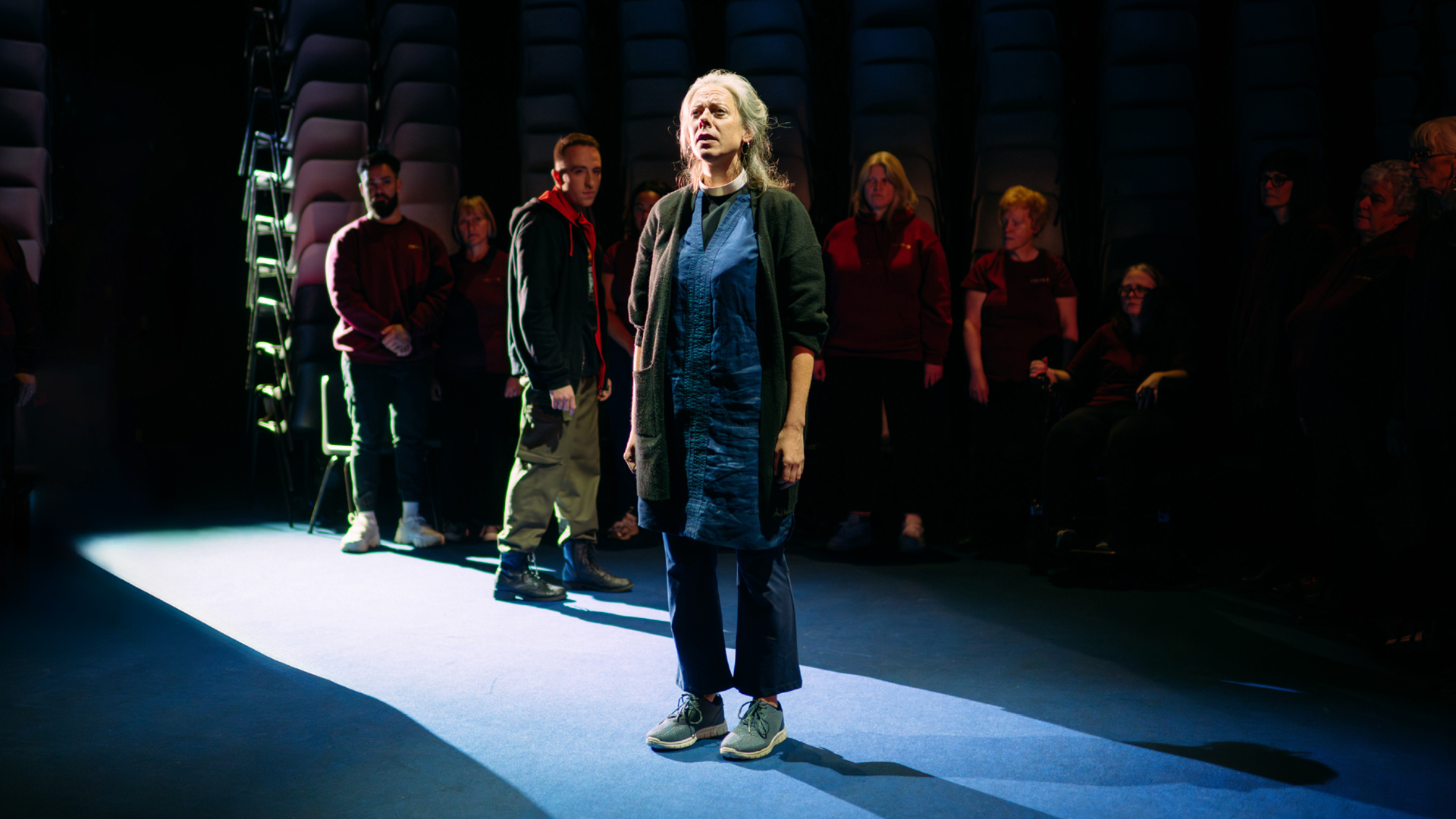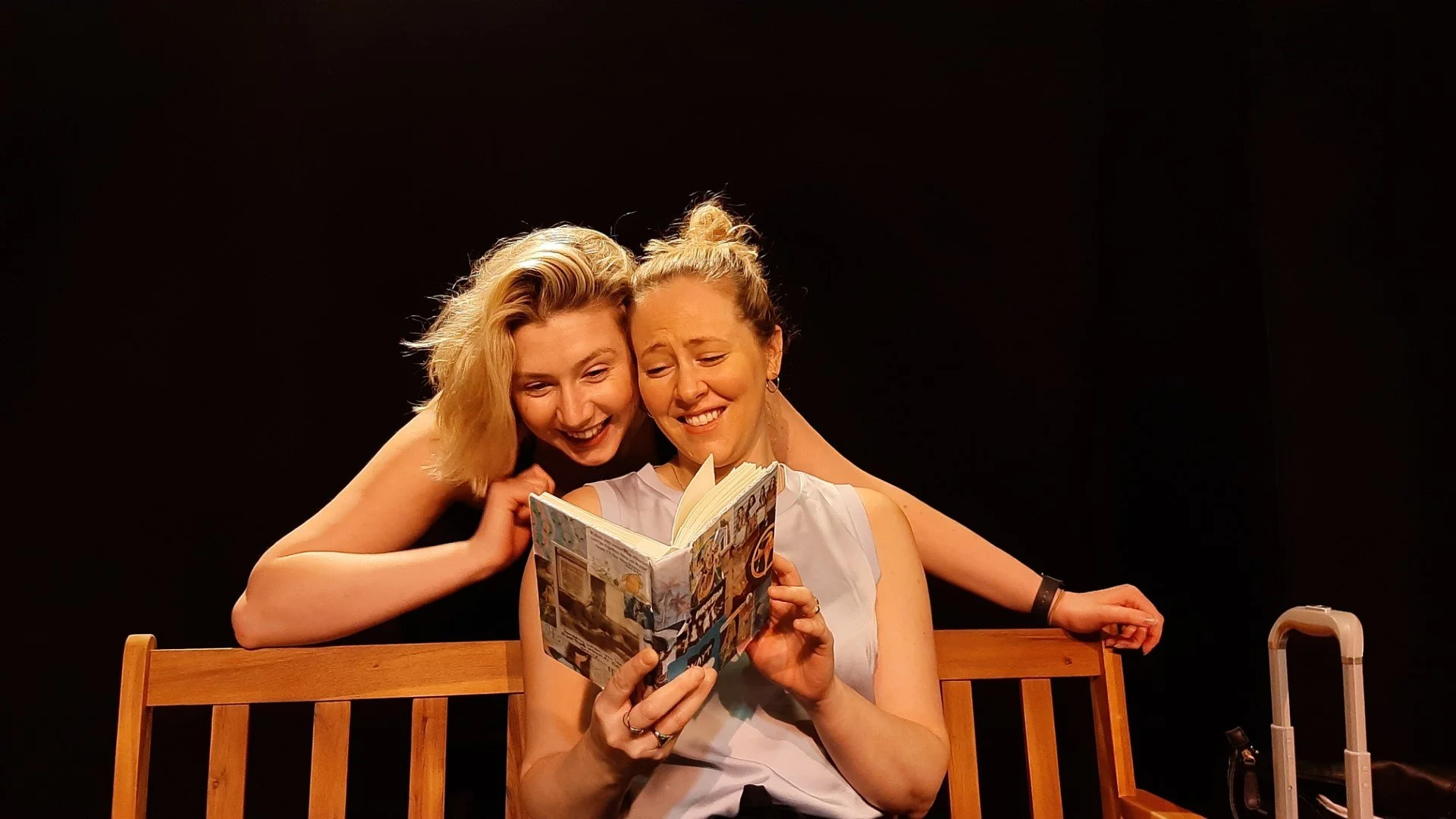REVIEW | Fragments, Playground Theatre
★ ★ ★
Reviewer - Penny
*Disclaimer: Gifted tickets in return for an honest review.
Fragments is a new play from Potential Difference. Written by Laura Swift and Russell Bender, who also directs, it tells the story of ‘Cresphontes’, a lost play by the Greek tragedian Euripides. Set in a library archive office, academics attempt to interpret a 2,000 year old papyrus to bring the story to life. With most of the script lost, it is down to them to fill in the gaps presented by these ‘fragments’ of an ancient tale.
The simple office set could be anywhere. There are cupboards filled with boxes, shabby chairs and a desk and an overhead projector for the experts to pore over their fragments of papyrus. As the play begins, the cast arrives for their working day, bickering over petty office politics. It’s all very mundane, the exact opposite of the epic revenge play they are investigating and so making the arrival of a Greek muse, only visible to the audience, all the more impactful. The set turns out to be an Aladdin’s cave for concealing props and costumes, the projector screen and window blind help build the story by showing shadow puppet projections, it’s a fantastically creative and inventive use of the space.
The projections are mostly effective, although not familiar with the story of Cresphontes its retelling through shadow imagery was a little hard to follow and this didn’t add much to the play. But overall the excellent use of lighting effects and an epic soundtrack elevated the play to give it a heightened sense of drama.
As student Sam (Afia Abusham) attempts to piece together the fragments of Euripides’ story, the characters within it are brought to life by her fellow academics, taking on the roles of the murderous King (Clive Mendus) and his Queen (Rosie Thomson). Inspired by the Muse (Anne Marie Piazza), Sam experiments with various ideas to move the story forward. A fifth character suddenly appears, he is Aeyptus, the Queen’s son looking for vengeance on her husband the King who murdered his father and brothers. Played with a commanding presence by Akiel Dowe, his appearance wasn’t explained. He existed only within Euripides’ play but while it was apparent that the other actors were being controlled and manipulated by the Muse to take on their roles within it, it wasn’t clear how he came to be there.
As the play comes together, my eyes were constantly drawn to the Muse. Anne Maria Piazza fills the character with an inquisitive charm and infectious enthusiasm. Her speaking voice has a clear melodic tone and her physical presence and mannerisms made her stand out – very fitting for the deity she was portraying. She also offers inspiration to Sam, who has become in the mind of the Muse her “poet”, through some beautifully haunting songs written by Jon McLeod and Victoria Saxton. Piazza’s voice is perfectly suited to the music, with a clear but otherworldly delivery that is highly evocative of the ancient world she is drawing us into.
The Muse is such a strong character and performance that the rest of the actors are in danger of being a little one dimensional. This is effective in showing that the Muse is in control but I would have liked to have seen a little more development in the other characters, particularly Sam as she grows into her assigned role of the Poet.
Potential Difference have clearly put a huge amount of thought and work into bringing Fragments to the stage. It’s an intriguing idea for a play, one that allows the writers, actors and audiences to use their creativity and imaginations to fill in those gaps.
In its current format, however, the play does not always achieve its potential. It is far too long, running at an hour and forty minutes without an interval (rather than the advertised 80 minutes). The set up at the start could be considerably shorter. The “real world” characters are not interesting enough that we need to spend time getting to know them and despite a substantial amount of dialogue before we get to the business of telling the real story, we do not learn anything substantial about the people on stage.
The action is also a little repetitive at times, as the cast struggle to work out the best way to fill in the gaps provided in the fragments of papyrus. The same little scene will play out multiple times but without enough changing to keep the audience engaged. It is, perhaps, a little TOO fragmented and the plot needs to be tighter. Although the story of Cresphontes has all the classic tropes of a Greek tragedy – family, murder, revenge, power, sacrifice – not everybody watching is a Greek scholar so it would have been helpful to have a clearer set up for the plot before we dive into creating the story.
None of these issues are insurmountable. ‘Fragments’ is an intriguing premise, delivered by a talented and committed company. It just needs a little bit more of the Muse’s magic to truly elevate it into something special.





